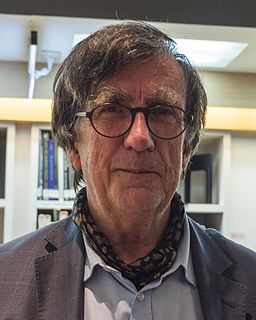A Quote by Bruno Latour
India is a reservoir of alternative interpretations of what the global is, and these ways of viewing the world need to be exposed.
Quote Topics
Related Quotes
In pursuing economic growth, India and the United States share similar values and similar challenges. We understand that the global economy is here to stay. To keep growing and leading the world in innovation and opportunity, the United States and India must trade freely, openly, and according to the principles of the global marketplace.
India does not need to become anything else. India must become only India. This is a country that once upon a time was called 'the golden bird'. We have fallen from where we were before. But now we have the chance to rise again. If you see the details of the last five or ten centuries, you will see that India and China have grown at similar paces. Their contributions to global GDP have risen in parallel, and fallen in parallel. Today's era once again belongs to Asia. India and China are both growing rapidly, together. That is why India needs to remain India.
As for the Jewish-American question, what's funny is that I grew up in India, and the Jewish-American comparison is better for second-generation Asians. I'm sure there's something about globalization that has globalized our neuroses, so that I, growing up in India, somehow turned out very similar to you. It's a weird thing, when you think about it, but everyone now is exposed to a mainstream white American world, wherever you are. And so there's this need to belong or measure yourself up to that white world, which leads to all sorts of straining.
I spend most of my time in South Korea but at least one-third of my time is spent traveling around the world, meeting people, speaking about climate change and sustainable development and trying to foster global citizenship especially for young people. What I observe is there clearly is a need for global citizenship. That is exactly right. We are having troubles around the world. We need global vision.
The basis for securing preferential future trade terms with India begins in that recognition of essential equality. Indeed it begins in recognising that India is now an emerging global superpower whose primary interests are regional in South East Asia and who needs a deal with the U.K. less than we need one with her.
But Australia faces additional regional and global challenges also crucial to our nation's future - climate change, questions of energy and food security, the rise of China and the rise of India. And we need a strong system of global and regional relationships and institutions to underpin stability.
There comes a point in every story where you have got a reservoir of knowledge, and you are then really just adding the substantial new facts to your understanding of it. That is the easiest situation, because you can call on that reservoir, but when you get a sudden story out of nowhere, like ebola, you don't have a reservoir of knowledge.




































